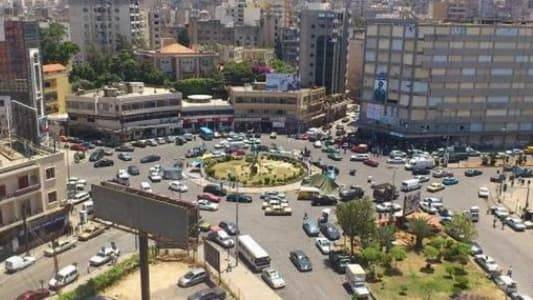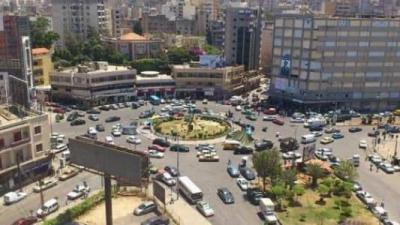No voice rises above the voice of the battle for the regional mufti in Dar al-Fatwa, where the lines between reforms in religious institutions and political interventions are blurred. Preparations are underway to finalize the elections scheduled for December 18. The judicial committee at Dar al-Fatwa approved the files of 27 candidates for the elections of regional muftis and rejected six of them for violating Article 28 (deficiencies in the file or failure to meet conditions such as age) of Decree 18/1955, which regulates the affairs of the institution. The committee's actions sparked criticism among the sheikhs and accusations of interfering in the electoral process after it approved the nomination of one of its members while rejecting a rival’s candidacy, in addition to not publishing the electoral rolls ahead of the election date.
In any case, Dar al-Fatwa has set the elections in motion, and with this, the door has opened for political interventions in the regions whose electoral bodies have been invited, including Akkar, Tripoli, Zahle, Baalbek-Hermel, Rashaya, and Hasbaya-Merjayoun.
Despite the primary goal of the elections, according to informed sources, being to reduce the Future Movement's control over the religious institution, the movement is simultaneously working to assert its dominance over the electoral bodies, proving that it can still "produce" more than one mufti in the regions. The most significant battle will take place in Tripoli, where political and personal considerations overlap, with a large number of candidates (7); insiders indicate that the serious candidates are: Muhammad Imam, Samir Kamal al-Din, and Bilal Baroudi.
According to reliable sources, Baroudi and Kamal al-Din are personalities that Saudi Arabia wishes to see in the mufti position, with a preference for the latter due to his closeness to Mufti Sheikh Abdul Latif Daryan. Meanwhile, Baroudi attracts hardline supporters with sectarian rhetoric that aligns with the positions of the Saudi embassy, and he enjoys support from MP Ashraf Rifi.
Sheikhs close to the Kingdom deny that the Saudi embassy in Beirut has promoted any names among them, but that does not mean there will not be marketing efforts as the battle approaches. Nevertheless, others believe that Imam has higher chances than the other candidates, given that the acting mufti of Tripoli is not far from Saudi Arabia and its religious ideas. He also enjoys support from the caretaker Prime Minister Najib Mikati, who has direct influence over several judges and sheikhs. Additionally, MPs Faisal Karami and the Charity Sheikhs Association, along with some Islamic associations, do not oppose running Imam’s name. Conversely, observers emphasize that it is impossible to predict the outcome of the battle in advance, as many electoral body members may not follow the desires of politicians.
**A Future Split in the Bekaa**
In Zahle, four candidates are competing: Khaled Abdul Fattah, Taleb Jumaa, Abdul Rahman Sharqiya, and Ali Ghazawi. Most forecasts favor Ghazawi, who has connections with multiple parties and enjoys support among the sheikhs and municipal leaders in the area. The late Mufti Khalil Al-Mays had insisted on handing over Al-Azhar endowments in the Bekaa to him for his "clean hands," as he used to say. However, some members of the electoral body do not hide their opposition to the son of Gaza holding the mufti position, considering that the town would then " monopolize" all positions from parliamentary representation (MPs Hassan Murad and Yassine Yassine) to the mufti position.
Conversely, Sharqiya also has significant standing in the electoral body, especially among municipal leaders and sheikhs of central Bekaa, as he has established good relationships with them, having previously worked as an imam in several mosques. Meanwhile, Taleb Jumaa, whom former Prime Minister Saad Hariri had promised would succeed the late Mufti Al-Mays, seems to have much lower chances after Al-Mays’ death and Hariri's "suspension" of his political activities. Reports indicate that intense communications are taking place between Jumaa and Sharqiya for one to withdraw in favor of the other, which poses a serious threat to Ghazawi's chances. Former Minister Abdul Rahim Murad is also working to support consensus among the candidates to emerge with a single name before the elections. While the Murad family supports Ghazawi's nomination, the judges, sheikhs, and mayors aligned with the Future Movement are divided among the other three candidates.
In Hasbaya and Marjayoun, the current acting mufti, Sheikh Hassan Dali, remains the strongest contender against candidates Imad Al-Khatib and Fadi Nasif. Dali, a native of Shabaa, enjoys widespread popularity and possesses significant connections within the electoral body and with political forces. The Future Movement does not hide its support for him, and some members within the movement consider Dali’s battle to be their primary battle. With Future Movement officials placing significant weight on this electoral process, observers predict that Al-Khatib may withdraw in favor of Dali at the last moments.
The low number of electoral body members in Rashaya (19) suggests that the outcome is clear in favor of candidate Wafiq Hajjazi, who has the highest chances against candidates Ayman Sharqiya and Jamal Hammoud. Thus, there are no indicators of a real battle in the area, with an expectation to endorse Hajjazi before the elections, especially since he possesses the overwhelming majority of the body's votes.
Similarly, in Baalbek-Hermel, three candidates are competing: Ayman Al-Rifa'i, Sami Al-Rifa'i, and Ali Hassan. The most likely to win is the former mufti, Ayman Al-Rifa'i, known as Bakr Al-Rifa'i, with discussions about the possibility of Hassan withdrawing. Al-Rifa'i is well-established in his region, has strong ties with all forces, and commands a substantial number of supporters within the electoral body, which consists of 25 members, in addition to clear support from the Future Movement, which considers him close to it. He is also known for his proximity to Saudi Arabia, as the former mufti Sheikh Muhammad Rashid Qabani appointed him as mufti in 2013 during the peak confrontation with the Future Movement. His appointment at that time was seen as a rapprochement between Qabani and Saudi Arabia.




